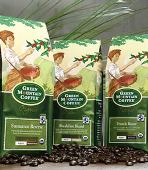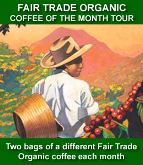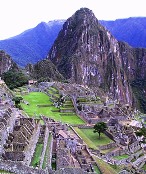Organic Coffee - What is it
For many, the term "organic" or "organically grown" coffee simply means food grown without the use of pesticides and chemicals. This generally suggests a healthier alternative for consumers looking to eliminate or reduce the intake of toxic or harmful substances. Organic farming is also synonymous with "natural" and "wholesome", or the opposite of artificial.
With coffee, organic refers to a bit more than simply coffee grown without the use of pesticides and chemicals. In the coffee industry, organic takes on a few more issues. You'll often see "fair trade" and "shade grown" tied to the practice of producing organic coffee. There's a bit of history and some significant economic and environmental issues behind all of this.
A little bit of Coffee History
Coffee was introduced to Latin America in the 18th century by a few intrepid explorers. Today, the regions of Latin America and the Caribbean produce almost two-thirds of the world's coffee.
When coffee was introduced in the New World, it was cultivated in the shade of native forest trees. This had been the same "shade cultivation" practice for for cacao for many centuries.
The original varieties of coffee brought to the New World were intolerant of direct sunlight. The canopy provided by the shade trees filters the intense sunlight of the region from burning sensitive leaves of the coffee plants.
In Latin America, this is the way coffee plants have been grown for almost two hundred years. Until recently!
Today's Coffee Growing Demands
In the last thirty years, with the ever increasing demand world wide for coffee, farmers have been looking for techniques and methods to increase coffee production yields. Research has produced new sun tolerant varieties of coffee plants.
While sun grown coffee systems can significantly increase production yields, farmers must introduce chemical fertilizers, and a range of insecticides, herbicides and fungicides to protect the coffee plants from the ravages of insects and disease. In addition, these sun growing systems result in much more shallow root structures in the soil which causes increased erosion and toxic run off.
A sun grown coffee plant can produce as much as three times more coffee than a shade grown tree. This elevated yields have accelerated the transition from the traditional shade grown cultivation to the new sun grown systems. Unfortunately, this comes with some serious environmental impact.
In addition, with the transition to sun grown systems, the reduction of the shade tree forestry in Latin America has put ecosystem pressure on the wide and diverse habitat for a number of bird, reptile, insect and plant species. There is considerable attention and focus on the threat to many species of birds. The shade coffee plantations provide protection and shelter for up to two thirds of the bird species indigenous to the region. This is an destructive trend that concerns many environmentalists.
Shade Grown Coffee vs. Sun Grown Coffee - The Bottom Line
Shade grown coffee, while producing lower yields, translates to "organically grown" coffee leveraging the natural protection and soil enriching characteristics of the shade tree canopies.
Sun grown coffee, while producing higher yields, comes with the introduction of harsh pesticides and chemical fertilizers, and unfortunate environmental impact.
Organic Coffee - Certification
Coffee must be produced in compliance with with U.S. organic production standards in order to be sold as "organic" in the United States. The U.S. Department of Agriculture accredits several agencies to monitor and manage organic certification.
For coffee producers to meet organic certification, some of the requirements include:
- Coffee must be grown on land without synthetic pesticides or other prohibited substances for three years.
- There must be a sufficient buffer (distance) between the organic coffee growing area and the nearest conventional crop not following organic practices.
- The coffee grower must practice sustainable crop rotation to prevent erosion, depletion of soil nutrients, and control of insects, pests and crop disease.
Look for the USDA Organic seal on any coffee product that contains at least 95 percent organic ingredients and has been certified organic by an an agency accredited by the USDA. Coffee products may also carry labels saying "100 Percent Organic" or simply "Organic".
Organic Coffee - Passing Fad or Meaningful Trend
Many consumers choose to buy organic coffee primarily for the health benefit to avoid the intake of potentially harmful toxic substances including pesticides and chemicals. For some, the marketing and promotion of everything natural, healthy and organic may even be overdone and exaggerated, possibly even deceptive at times.
However, within the coffee industry, organic growers are just as concerned, if not more so, on reducing the impact to the environment, and employing sustainable and renewable crop methods.
Statistics gathered in 2003 place organic coffee at about 0.6 percent of the coffee sold in the major consuming countries globally. While a seemingly small percentage of the overall market, that is still over 700,000 60-kg. bags (42,000 metric tons) for the major coffee-consuming nations in 2003. By all accounts, a growing and expanding industry trend.

 Green Mountain Coffee Roasters - Freetrade orgainic coffee sampler
Green Mountain Coffee Roasters - Freetrade orgainic coffee sampler
 Green Mountain Coffee Roasters - freetrade organic Ethiopian Yirgacheffe
Green Mountain Coffee Roasters - freetrade organic Ethiopian Yirgacheffe Green Mountain Coffee Roasters - freetrade organic Peruvian Select
Green Mountain Coffee Roasters - freetrade organic Peruvian Select